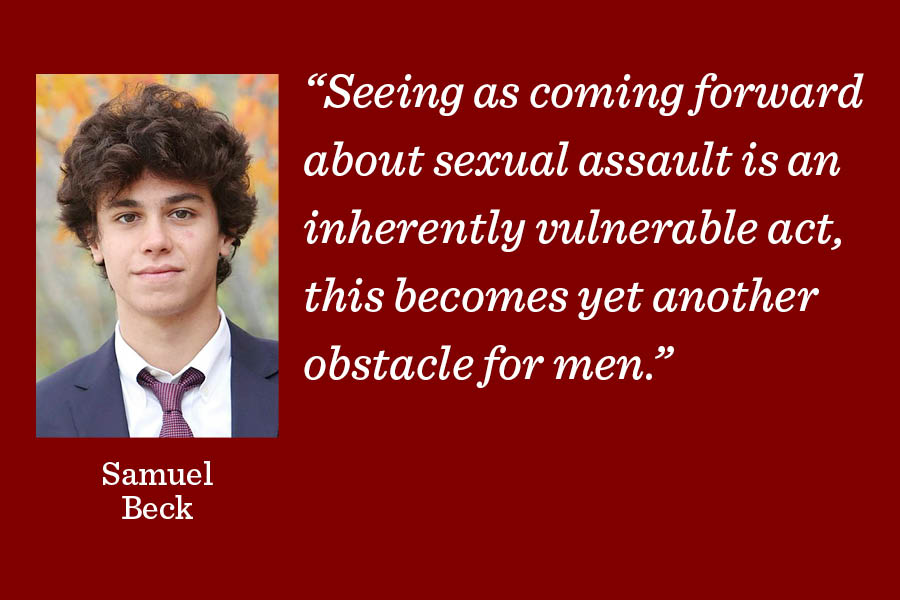Male sexual assault must be addressed
Midway Staff
Male sexual assault is an important problem that has lagged behind the improving social response for female sexual assault, argues reporter Samuel Beck.
April 5, 2022
Many of us know the Chicago Blackhawks as one of the greatest professional hockey teams in recent memory. We think of parades, overtime goals and 17-second turn-arounds. Blackhawks player Kyle Beach, however, thinks of something very different. During the Blackhawks’ 2010 Stanley Cup run, Mr. Beach said he was sexually assaulted by Brad Aldrich, a Blackhawks trainer at the time. According to Mr. Beach, Mr. Aldrich invited him to his house, threatened to ruin his career and then sexually assaulted him.
This heinous act, and the subsequent pervasive negligence by one of the most prolific teams in the sporting world has gone largely unnoticed, and there is a reason: as a society, we struggle to see men as vulnerable, and as a result struggle to support men as victims of sexual assault.
This case is part of a much larger phenomenon when it comes to sexual assault cases with male victims. Male sexual assault cases are not only underreported but consistently receive less attention than other sexual assault cases. According to a 1997 study, men are statistically less likely to report sexual assault when it happens to them. And it’s not like these cases are rare, either. A 2005 study conducted by the U.S. Centers for Disease Control and Prevention, found that 16% of males were sexually abused by the age of 18. Moreover, most studies exclude penitentiaries, a hotbed for mens sexual assault cases.
According to a study published in the National Library of Medicine, this lack of reporting is due not only to shame and self blame but also to social stigma regarding sexual assault when the victims are men. The question again becomes why.
Reporting of sexual assault, and an environment that fosters a feeling of safety for victims coming forward, is a much more recent development in our social collective conscious than most people likely realize. The #MeToo movement, which exposed pervasive sexual assault in many facets of the professional world, was borne of the feminist movement, as are many of the nuanced progressive ideas about gender roles. As such, these developments cater largely to certain demographics — a growing culture of accountability, and bravery in the face of sexual crimes is a change that has, for the most part, happened only for women.
Gender roles play a significant role in this too. Not only are men rarely allowed to be seen as vulnerable, or even struggling, but men are often blamed for that fact. Seeing as coming forward about sexual assault is an inherently vulnerable act, this becomes yet another obstacle for men.
Ultimately, changing societal ideas regarding sexual assault has proven to be a genuine aid in preventing them, and while there have been significant steps forward in supporting and listening to victims for women, there need to be for men, too.













J. Alvarez • Apr 6, 2022 at 11:59 pm
Very good article. Interesting and engaging narrative highlights the subject matter.
Sunny Neater • Apr 6, 2022 at 1:36 pm
Thanks for bringing this to light. Great piece!